
In the past five years, people from different fields transferred their focus to charity and put their energy in it. Deng Fei is one of them. Not only is he a product-designer, but also a producer. He constantly does social experiment and tries to change the structure of our society from its base.
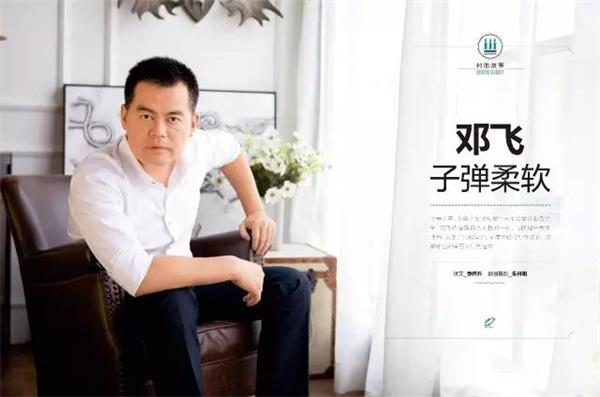
“If I can stop one heart from breaking, I shall not live in vain; If I can ease one life the aching, Or cool one pain, Or help one fainting robin Unto his nest again, I shall not live in vain.” – Dickenson
Deng Fei finally decides to not rush anymore.
This is a release for him. In the past few years, he was like a black horse running out of all Chinese charities. He helped many Chinese children in villages to have free lunch in the last few years as well as enjoying China Rural Kids Care, a medical insurance. Thus he received various trophies and high reputation. But he worked so hard that he got white hair at the age of thirty eight.
Wang Zhenyao, President of Chinese public welfare, said that FLFC is a rare success in Chinese charity’s history. After getting big success in the field of charity, Deng Fei changed to business. He tried to solve the problems in Middle-western villages in China through social enterprises. In the summer of 2013, he declared that “These seven charities are enough, we’ll stop at where it is” when he was preparing for the seventh charity. In the summer of 2016, when I met him in Hangzhou, he just made the plan for the twelfth charity program. This charity would be spread in 23 provinces in China, directly serving seventeen poor counties and more than a million kids who are left at home by their parents. This doesn’t include direct-related supporter and coordinators, such as the 4,000,000 donators.
People who used to cheer for Deng Fei showed their hesitation at this point. They suggested him to “slow down his speed.” Wu Xiaobo, an expert whose focus is on finance and economics, warned people that “be alert to miracles.” He wrote the following sentences in a conclusion of Chinese enterprises’ failures “If one roars up and creates a miracle in a world that doesn’t belong to him, he can be called a strongman. However, curbing his irrational impulses after roaring up and growing with a common attitude, he could be called the real hero.” Wu Xiaobo alerts entrepreneurs that any miracles may not be the products of rationality.
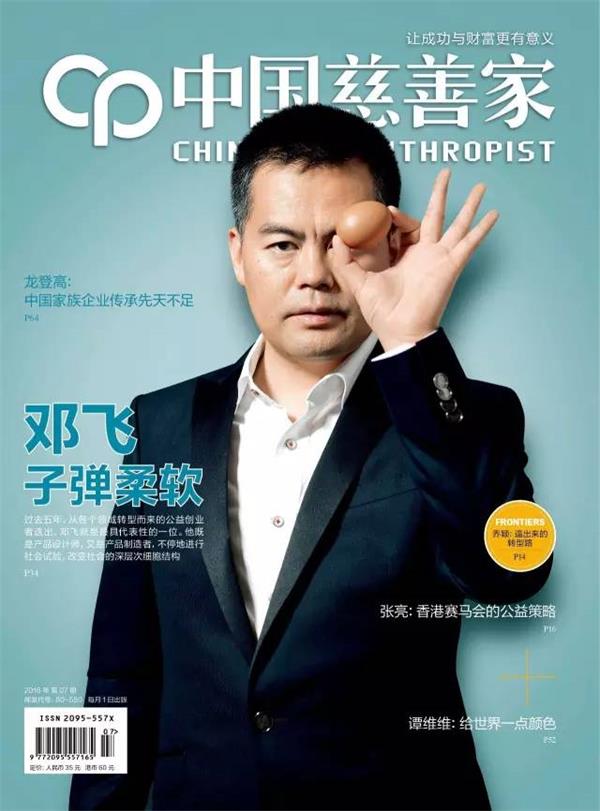
Chinese Philanthropist cover for July, 2016
Rehabilitation
Deng Fei does not think he’s moving on without a plan. On the contrary, he thinks that his logic is very clear: village children, village environment, and training for human resource. “I’m caring for the systematic solution for Chinese villages.”
But what Deng Fei must face is that this well-rounded solution can’t be continued anymore. The existed process system is encumbering efficiency; new members don’t know what to do in the group… Deng Fei realizes there’s something wrong and is shrinking the working load. He decides to get out of the daily routine and recreates a system, achieving high efficiency and simplicity. He will also push the operation of all organizations to be under the rule of law, as well as anatomy of the organizations.
“You can picture this as the first step. Before, we didn’t have and we weren’t able to do so. It was led by my observation and judgment.” As an intersection of several groups of power, he must consider about democracy and rule of law. Thus, he decides to learn about law this year. “Now our organization is working with more and more groups and people, me myself can’t protect everything. This forces me to improve my ability and make sure that everything we make is fair. Something when we work with someone and he might be losing instead of benefiting, but I don’t see the problem and he doesn’t mention it. But he has resentment and would tell people that Deng Fei is selfish. I don’t want this situation to happen and I’m expecting to see a win-win situation.”
Another reason that Deng Fei suddenly slows down is because of the death of his family member.
On June 30th, Jin Bo, who is Deng Fei’s brother-in-law and the subeditor of Tianya Community, suddenly died due to living under too much pressure and overworking. This alerts Deng Fei and he went to see the doctor. The doctor told him that his liver is in bad condition.
Now, Deng Fei is obsessed with regimen. In a regimen spa in western Hangzhou, Deng Fei puts his feet in 40 degrees Celsius water, putting hot Chinese medicine packets on his back, his neck, and his shoulders. He’s holding another one in his hands and places in on his stomach.
During the time that I visited Hangzhou, Deng Fei liked to sleep a lot. Besides sleeping, he also meditates, eats eight capsules of fish oil, going to the spa and gets massage. In the morning, I arrived firstly at his office. When he entered the room, he looked for tea first. After selecting Pu’er tea, he sat down and started boiling water and cleaning the tea set. He told me he wanted to have a little rest. In the noon, undergraduates who came for training asked Deng Fei some questions. Deng Fei answered several of them and told them he was going to take a nap. In the evening, he murmured to his colleagues who came to discuss work with him that it was time for his massage. Deng Fei worries about his team, too. “They are all workaholics.” He wants to end the extremely busy condition for his team members and find a better way to do the work.
Deng Fei continues to tell other that “take care of yourself and your family,” including me. Hangzhou in summer is like a big food steamer, I had to constantly take out tissues and wipe my perspiration. But Deng Fei didn’t turn on the air conditioner on purpose. He said “I feel like you have a lot of Yin, it would be better if you sweat.”
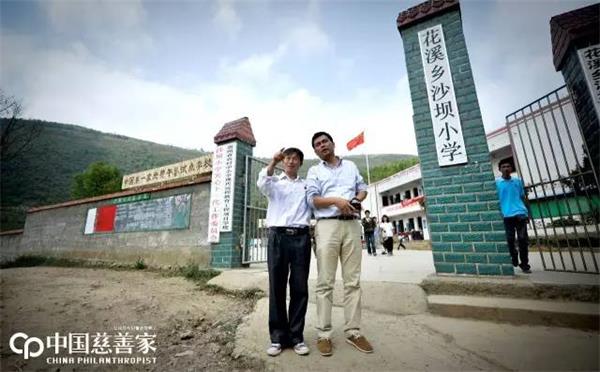
April 2nd, 2011, FLFC officially started; Shaba primary school in Guizhou became the first “testing school”
“Anyone's death could make me lose.”
What’s interesting is that although Deng Fei does charity by vertical integration, he doesn’t benefit by his ability of creating a connected network. By using his words, he’s benefited from the internet: converging great power by individuals’ effort. Thus he started the era of ???
In 2009, Sina Weibo started a testing version, people who work for media are the first users of this version, including Deng Fei. Soon, he understood the chance of extracting information that Weibo provided. Deng remembered: “Things that are seen as taboo by the media are extracted on Weibo. People can talk about it and express their opinions. These things thus become normal, and freedom of speech is extended.”
Deng Fei’s friend, Luo Changping, subeditor of Finance and Economics, thinks that Weibo is a great allure for reporters. Because it can effectively affect the things that are happening right now. “When Weibo started in China, it somehow fills in the blanks of traditional media. It divides the risk of regulation and optimize the cost and efficiency of information spreading.” That’s what Luo tried also. On December 6th, 2012, he posted three “risk for condemnation” posts on Weibo, reporting the director of Bureau of Energy, Liu Tienan, and started the prelude of the downfall of some officials.
There is no doubt that Deng Fei benefits from Weibo. When Weibo started to become the field where major discussion occurs, Yihuang incident and Weibo Daguai quickly made Deng Fei the leader of public opinions, and accumulated sources for Deng’s charity.
If Luo is the “urchin” of the new media era, Deng Fei, who turns to do charity, would be called a “kid who transport trees.”
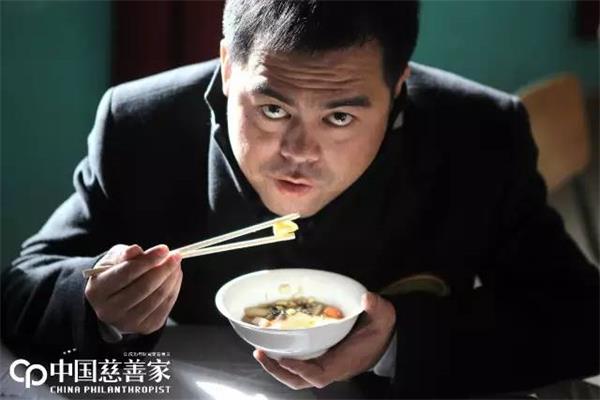
In 2012, Deng Fei saw an Indian mini movie called Tree. A tree falls down and block the way of everyone, but they would rather complain and wait in the rain than stepping up and move the obstacles. A little kid first started, his action brought more kids to do so. At the end, adults had to join in as well. “As a stroke of lighting, I suddenly realized the meaning beside this story: cultivating virtue by virtue. My tears fell down: I’m that little kid. I’m doing all these works by myself trying to solve the issue of hunger. My action brought attention of others and people started to join in. And we could finally move the tree.”
Deng Fei clearly knows that the issue is not as simple as a fallen tree.
In the beginning of 1990s, China started a new cycle of economic reformation. About ten years later, Chinese GDP surpassed Japan and China became the second biggest economic entity in the world. As the development of economy, problems like corruption, environmental pollution, increasing gap between the poor and wealthy start to appear. In order to solve these problems, government reduces tax, pays more attention to the minorities… But social issues can’t be solved at once in such a big and complicated country. Deng Fei expressed his worry in his book Soft changes China, “China is like a car running on its fastest speed. Village is the chassis of the car. If the chassis is not steady, the whole car can be destroyed.”
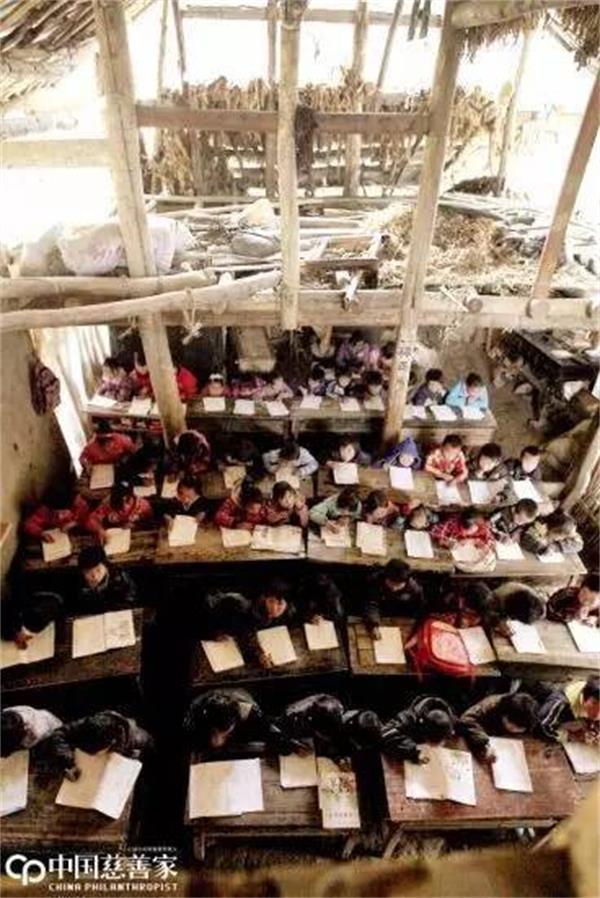
This is the “outside” reason that Deng Fei and his team rush through the five years.
Deng Fei thinks the “inside” reason is his sympathy. “When I see the difficult situation of village kids, I feel like what I’m doing is way too little. How many problems can come up with 68,000,000 village kids? So our team rushes all the time.” he even said that “Anyone’s death could make me lose.”
In 2011, Master Daan from Donglin Temple asked Deng Fei why did he start FLFC. He answered that he couldn’t see kids suffering from hunger. Master Daan then asked why not? Deng Fei hesitated for a moment, then replied it might be his nature.
Because of this nature, Deng Fei gave his parents a little headache: he couldn’t bear to see people harm animals. When he saw his grandpa came to his house to kill the pig, he scratched his grandpa’s face. “It’s the same reason for us to be reporters. Because you have care and love for others, you want to help those people who you’ve never met.”
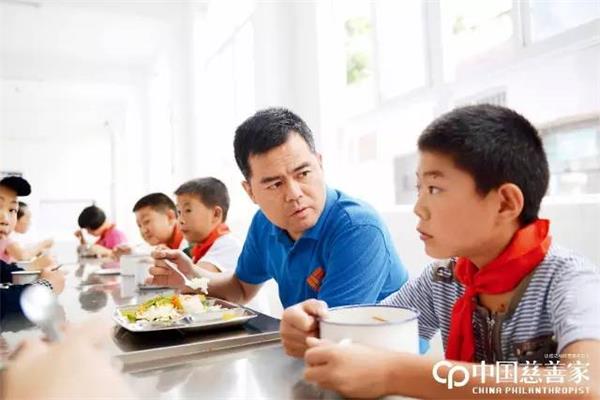
Why starting FLFC? Because I can't them suffering from hunger; Why not? Because of nature.
Repair! Repair!
In 1930, Shen Congwen described a tragedy in his novel Husband by telling the story of a couple in Xiangxi.
The man changes to a set of clean clothes. He carries grain all the way from his village to the wharf. He moves from one boat to another until he finds his wife. He steps on the boat, starting a talk between his wife and him. A businessman suddenly intrudes in the boat. He is drunk, and he rudely mumbles that he wants to sleep. The man goes to the back of the boat himself, leaving his wife in the front doing “business” with the businessman.
Boats all rest here in the wharf. If you spend five Yuan, you get to enjoy your time with a woman. Many young women come here to do “business.” The reason is simple: if they don’t do it, they won’t have money to support their lives. Men send their wives here to earn money and they cultivate in the village; it’s a normal trend here.
Deng Fei is familiar to a situation which is similar to the situation that is depicted in the novel.
A reporter from Hunan province said that “We refer to going out of Hunan as ‘leaving the lake’, the lake is Dongting Lake. It soon has a meaning of being successful. When old people are saying that you ‘leave the lake’, it means that you are pretty successful.”
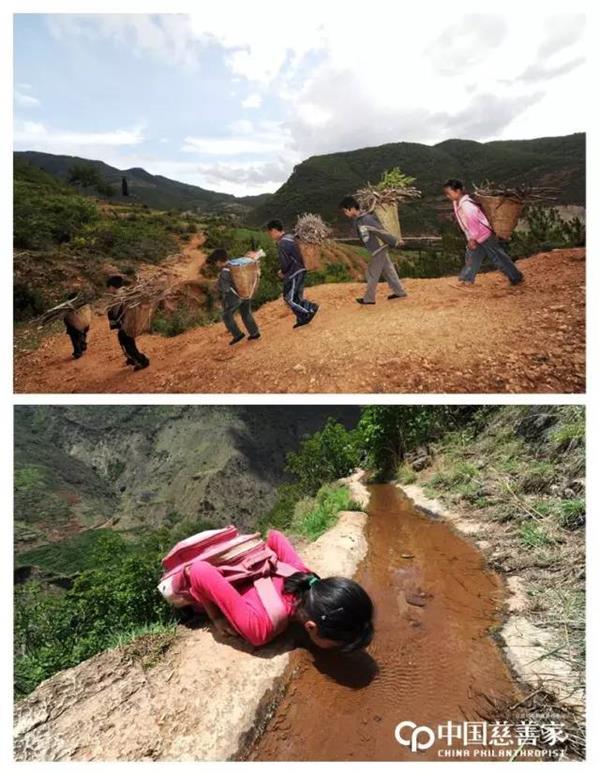
Childhood experience gives Deng Fei sympathy to the village kids
Deng Fei was born in a village near Dongting Lake in Hunan province. In the 1980s, novels about swordsman were very popular. In Deng Fei’s memory, the village was very poor, but busy. The change started in 1992, the women didn’t “leave the lake.” Instead, they left the old and young and went to the sea. “You can’t imagine what happened to our beautiful village while economy was developing. It was when I was a college student, our village had many women who went out and earned money. People referred to them as ‘Marine worker’.” What “Marine worker” means is that women who are prostitutes.
Deng Fei couldn’t understand the reasons behind it. After so many years, he finally learns that situation is the “social pain” during the turn of economy. The childhood experience gives him sympathy for the village kids. “In Chinese villages, things like this always happen these years. Children who grow up in this situation, can they be mentally healthy?”
The problem is not as simple as the issue of hunger.
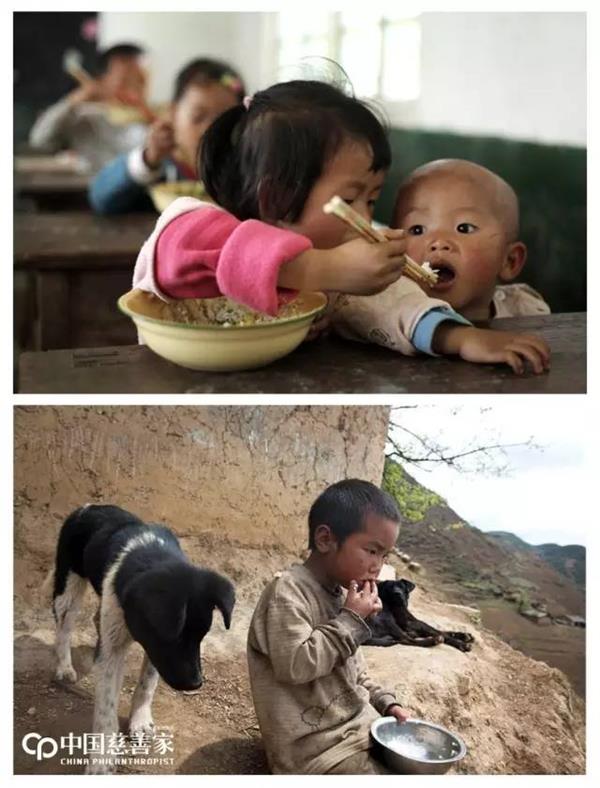
In 2015, reporter Yuan Ling visited a school that was involved in FLFC. She noticed that the nine-year-old girl Yang Xuan only showed smile when others were not around her, but the smile was gone quickly. Usually, she had to appear to be strong so that others wouldn’t bully her.
Yang Xuan was one of the kids who was left behind by her parents in the village; she lived with her grandma. Her mom disappeared after she was one year old. Her dad died in a car accident several years ago. The person who caused the car accident was too poor to compensate Yang Xuan’s family for their lost. Yang’s grandpa died early. Her grandma hunches over all the time; she’s even shorter than Yang Xuan. “Before I had my father protected me. I have nobody now. If anyone else bullies me, I have to deal with it myself.” On her way back home one day, Yang Xuan was carried to a shack by a psychopath. She hit him with rocks and thus ran away.
April, 2016, in the Innovation Forum in Wharton, University of Pennsylvania, Deng Fei said that although he had been doing charity for five years, the effect was very limited. “If the parents are not living with the children, our efforts don’t have much effect. Because we can’t solve the basic problem of the issue. In addition, it’s very laborious for us to help these children.”
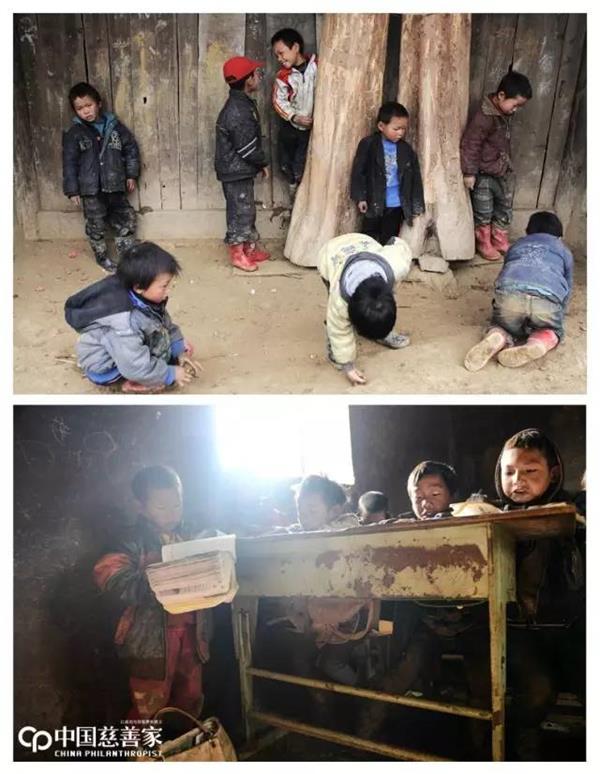
Deng Fei claimed that he found a new model to do the work: “charity with business.” It means that charity would connect people who need help with donators, then use e-commerce, logistics, loans, agricultural techniques to achieve the benefits for both urban and rural areas. Poor families can increase their income, and these children’s parents won’t have to work so hard in cities to make a living anymore. So that they can return home and unite with their children. “The unbalanced development is connected together by the internet now.”
Deng Fei said, he’s ready to do the “marathon.” He’s ready to continue doing this for ten years, twenty years, or even more. He specifically emphasized that the business he brought to the rural areas are not harmful. Instead, they can help develop the economy of the rural area.
If he wants to make this plan come true, Deng Fei needs support from many people. In nowadays China, this is not very easy to achieve. Looking around, the gap between different social groups are increasing. Businessmen become very careful about their investments after some changes; Media hesitates between capitals, power and new techniques; Intellectuals are still discussing about issues that are left from a long time ago; Most people have resentment, other people remain silence; And no one really knows what politicians are thinking.
Because of this, Deng Fei’s social experiment becomes the “greatest common divisor.” He thinks that charity can be accepted by different people in the society. Aung San Suu Kyi said: “When talking about justice, I always use Archbishop Desmond Tutu’s saying. He said he believes in restorative justice, not retributive justice. And for us, we have to pursue the restorative justice.” Although Aung San Suu Kyi said this to Burma, what Archbishop Desmond Tutu really advises is China. “If China can solve the former issues properly, it can become a greater country. If there’s no pardon, there’s no future.”
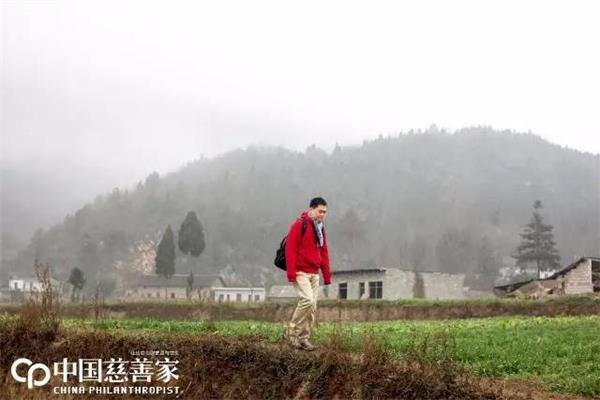
Deng Fei has a very clear logic: village children, village environment, and training for human resource. “I’m caring for the systematic solution for Chinese villages.”
Be alert to “bloody mistakes”
Deng Fei always remembers the ten years when he was a reporter, it was the years that media was very popular.
In 2007, Deng Fei disguised as a mineral businessman and went on a research of uranium mine in Ningyuan county, Hunan province. It was a market of nuclear material and many villagers were sellers. Uranium was a very detrimental substance and can cause people’s deaths. But the villagers only knew it could bring them money. Deng Fei saw these minerals piled up in front of many houses; some people even stuffed it under their beds. That time, Deng Fei published an article called “Chinese Black market of nuclear.” Also, he gave four hundred Yuan to a local old man and wished him longevity. “As a research reporter for ten years, I’m actually very tired. Because you write a lot of things, but there’s not much to change.” In the article of “Chinese Black market of nuclear,” Deng Fei wrote. But the official didn’t even publish the result of the research of the village.
In May, 2016, Deng Fei returned to Ningyuan county. But this time, he went there for travelling. Ningyuan county nowadays is a good place for travelling. A Taiwanese businessman found Deng Fei and said he had contracted a big land for dragon fruit and was hoping that “E-hopefarm” can help selling the products. Jiang Quanshi, the local director of Agricultural Bureau, was a representative of “Children’s Emergency Foundation.” He persuaded the E-hopefarm team by using the result of quality testing; and added the local old people who didn’t have a family into the plan.
After nine years, things changed a lot. “We use this ‘soft’ way to create, to construct. Complaining can’t solve the problems.” Deng Fei said. Zhu Xinhua, subeditor of people.com.cn, was very fond of Soft changes China. He said: “It has a significant meaning for our society.”
Zhu Xinhua entered college in 1979. After experiencing turmoil during the development of our country, he still remains the thinking of disobedience. During the turning point of our society, government and people need to work together. He said: “It’s not our inability that our country was like this when we were born; but it would be our inability if our country remains the same when our children are born.”
Deng Fei also explained his changing from media to charity: “By using surveillance to push the society, we might create more resentments. If these emotions can’t be solved, they would turn into a negative power. But if we construct our society with love and kindness, it’s easy to achieve a common view among people and thus cause the change. What we reap is love and kindness, which is also a good way to change our society.”
Yang Anwen, the former county Party committee of Xianfeng county in Hubei province, was a big fan of FLFC. Because of FLFC, Flying Box, and Big health insurance, children are helped and problems are settled. In 2013, Yang Anwen got a higher position: deputy mayor in Lhasa. “You can’t say the credit all belongs to us, but there certainly is a big connection.” Deng Fei said.
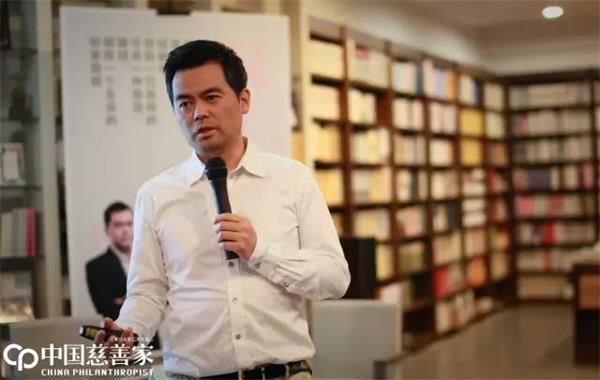
Deng Fei had given hundreds of speeches and trained many undergraduates. He never stops telling them that “Stop complaining and start action.” He said it’s easy to realize the negative side of our country but it’s crucial to know how to make the situation better. “Chinese people always blame on the ‘system’. ‘System’ is just a mysterious word. It seems like when you define one problem as caused by the ‘system’, you have nothing more to do about it. But this is not right.” As the former prime minister Wen Jiabao had said, any reformation would not be easy and requires all people’s efforts.
To some extent, this belief is succeeded from Deng Fei’s good friend He Daofeng’s idea. He Daofeng believes that charity should be started from little things that are around us. Stop talking big and acting small. It requires all people’s efforts to change China’s social structure and create a modernized civilization. This reminds me of a girl during the May 4th Movement. When most young people were discussing about new civilization and criticizing stereotyped writings, she went to villages in Beijing and suggested the people to brush their teeth and clean their faces. She said that was the real enlightenment.
“You don’t need to rush to change the structure of the country because it’s not an easy process. If you devote too much to it, only verbal violence and negative thinking would come out. By the end, you’ll realize only tears are left.” He Daofeng said.
In 2015, Li Zehou and Liu Zaifu published a book about reflection of radicalization. Them two had many connections to the time period of 1980s. They criticized the radicals and reformers. They said reformation always causes disaster.
Gradual improvement--- is growing big in charity, and is reaching a consensus.
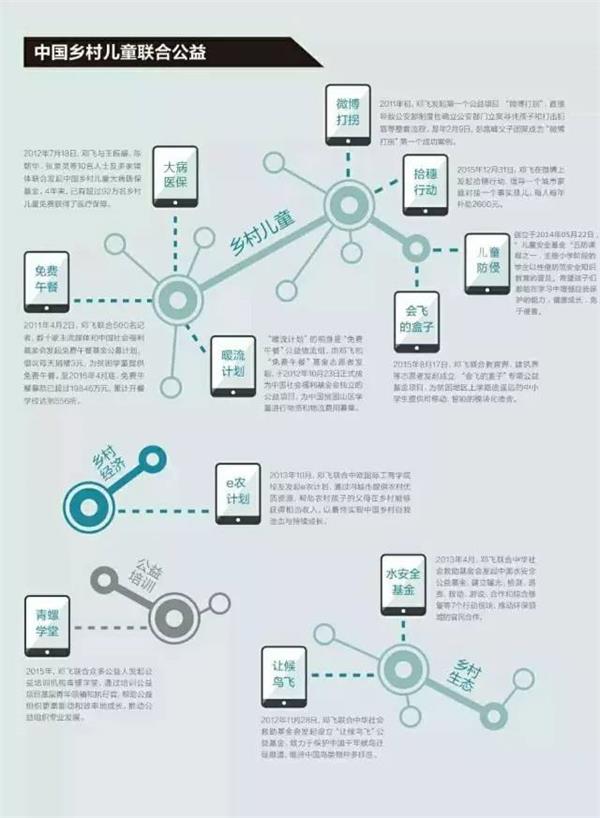
Article: Zhang Weisheng Photography: Zhu Danyang
Source: Chinese Philanthropist, July ; Original title: Deng Fei: Soft Bullet





.png)

































































